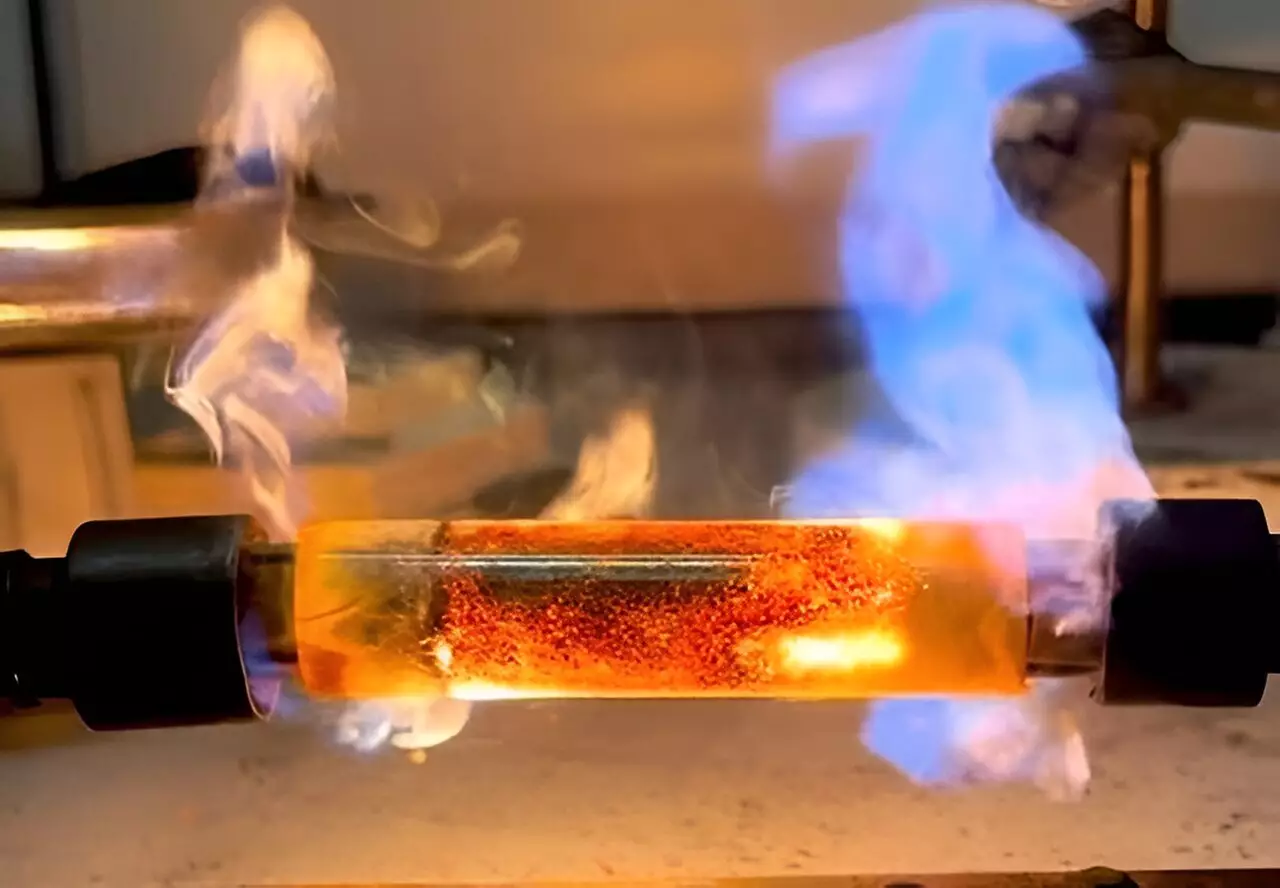The groundbreaking research conducted by James Tour’s lab at Rice University has introduced a new method called flash-within-flash Joule heating (FWF) that has the potential to revolutionize the synthesis of high-quality solid-state materials. This innovative technique, which was recently published in Nature Chemistry, offers a cleaner, faster, and more sustainable manufacturing process, setting a new standard for sustainable manufacturing.
Traditionally, synthesizing solid-state materials has been a time-consuming and energy-intensive process, often leading to the production of harmful byproducts. However, with the introduction of FWF, gram-scale production of diverse compounds can now be achieved in a matter of seconds, significantly reducing energy, water consumption, and greenhouse gas emissions by more than 50%. This marks a significant advancement in the field of sustainable manufacturing.
The success of FWF lies in its ability to overcome the conductivity limitations of traditional flash Joule heating methods. By utilizing an outer flash heating vessel filled with metallurgical coke and a semiclosed inner reactor containing the target reagents, FWF is able to generate intense heat of approximately 2,000 degrees Celsius. This intense heat quickly converts the reagents into high-quality materials through heat conduction, allowing for the synthesis of more than 20 unique, phase-selective materials with high purity and consistency.
The versatility and scalability of FWF make it an ideal method for the production of next-generation semiconductor materials, such as molybdenum diselenide (MoSe2), tungsten diselenide, and alpha phase indium selenide, which have historically been challenging to synthesize using conventional techniques. This advancement opens up new possibilities in electronics, catalysis, energy, and fundamental research, offering a sustainable solution for manufacturing a wide range of materials. Industries such as aerospace stand to benefit greatly from the superior performance of materials like MoSe2, which can serve as solid-state lubricants.
According to Yimo Han, assistant professor of chemistry, materials science, and nanoengineering, “FWF represents a transformative shift in material synthesis.” The ability to synthesize a diverse range of materials quickly and sustainably has the potential to revolutionize numerous industries and pave the way for the development of new and improved technologies. With its ability to reduce the formation of impurities and byproducts while maintaining high purity and consistency, FWF is poised to become a game-changer in the field of material synthesis.
The development of flash-within-flash Joule heating marks a significant advancement in the field of material synthesis, offering a cleaner, faster, and more sustainable approach to manufacturing high-quality solid-state materials. The implications of this groundbreaking research are far-reaching, with the potential to revolutionize various industries and drive innovation in the development of next-generation materials and technologies.


Leave a Reply